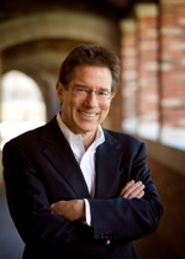
Can the disparate fields of academia and spiritual fulfillment ever work toward the same goal? Does the never-ending quest for knowledge push matters of religion and spirituality to the periphery? These questions lie at the center of massive cultural and institutional shifts in education and society, particularly in the West, that occurred over the past two centuries. Anthony Kronman, the Sterling Professor of Law at Yale University, addressed the spiritual-academic gap that America faces today in a Hamilton lecture, “Education in an Age of Disenchantment.”
In November of 1917, Max Weber addressed a student audience at the University of Munich. The setting for this lecture was a dark time in German history, one where revolution was stirring from both the right and the left, and the country’s future was uncertain. Rather than present the expected material on politics and war, Weber surprised his audience with a lecture on something else entirely: the “godless and prophetless” state in which he perceived education to be. According to Weber, the question we should be asking is whether we can reconcile academia with religion. His answer was a resounding “no.”
Weber believed that we live in an age of disenchantment, one in which humans have exiled God from the world that He created. Kronman explains that disenchantment is a result of the process of rationalization, or the need for “conscious, human control” in different aspects of life. Rationalization expresses itself through outlets such as technology, industry and a legal system that is removed from all a fear of God. In this way, humans have become “masters of our own fate,” and God has lost His place in the world.
Ironically, the dominance of the Christian religion itself has helped usher in the era of disenchantment. According to Christian beliefs, God must be placed at “ever-greater distance for the world” out of faith and respect.
That is, humans are taught to push God away from their own understanding because they cannot ever fully comprehend Him. Instead humans are taught to distance themselves from God. Secondly, Christianity mandates that its followers give God a gratitude that can never be returned, and one that can never be sufficient for everything God has given us. As jealous creatures, humans have slowly pushed God away, and so they have become “the heirs to God’s omnipotence.”
Disenchantment reached the collegiate arena in the latter part of the 19th century for two main reasons. First, colleges were thrust into an increasingly secular culture, which was losing its religious identity due to increased diversity, the growth of industry, and the advancement of scientific theories such as evolution. Second, in the world of education, increased specialization and changes in instruction methods led to a higher emphasis on research, which created a thirst for knowledge that competes with traditional spiritual fulfillment.
Today, scholars such as Kronman still struggle with the concept of balancing rigorous academic research with “matters of ultimate personal concern,” namely, salvation. As an academic, one must always be aware that one’s contributions to a field will always be miniscule and unimportant in the grand scheme of the flow of knowledge. On the other hand, Kronman suggests that religion offers stability and eternity; a salvation that always has been there and always will be. In other words, there is a substantial disparity between the two concepts.
Kronman argues that perhaps it is impossible to revive a belief in God in academia, or at least it is impossible to bring back the God of Abraham because of how society is structured. He also briefly touched on Aristotle’s God, which was the world itself. Instead, Kronman hopes that society and academia might adopt a new perspective on God, one inspired by Walt Whitman and Baruch Spinoza. In this new view, God is within the world itself, instead of a force that extends from outside it, but God is also found within each individual. In this way, when humans search for self-improvement in the form of knowledge and specialization, they become closer to God.
Ester Malisova is a graduate of the Heschel School in New York City.
